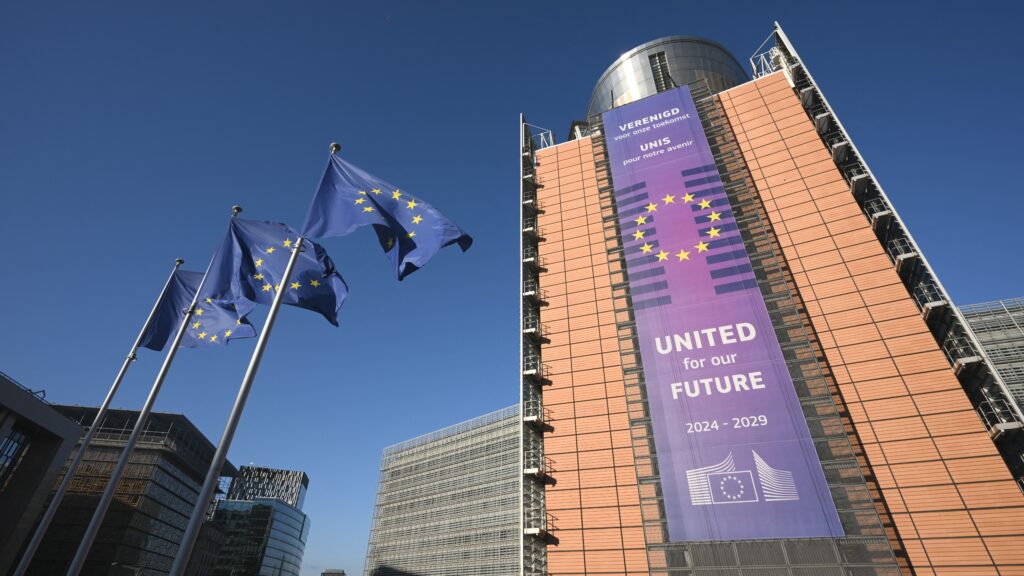This article was published in Vol. 4 No. 2 of our print edition.
Conservatives have, with reason, always been suspicious of technology and its transformative consequences. Liberals, by contrast, even more than socialists, have celebrated its possibilities. Marshall McLuhan, the godfather of media studies, who has done more than most to clarify the impact of new technologies on the social and political order, considered technology neutral. It was the uses we made of innovations that drove social and political change. The invention of the stirrup made feudalism possible, while Gutenberg’s printing press created the conditions for individualism, freedom of opinion, and the Reformation.
The computer, McLuhan argued in the 1970s, would transform our relationship with ourselves and with the way we consume media. The global village that McLuhan foresaw would be a Babel of information, but it intimated what his favourite theologian, Pierre Teilhard de Chardin, termed the possibility of a ‘world soul’ or an ‘electronic noosphere’. McLuhan was undoubtedly correct that the new digital technology would profoundly upset the socio-political order of the analogue age.1
The liberal progressive vision that emerged in the late twentieth century bought into the notion of technological neutrality. In this context, it served a broader liberal purpose to neutralize politics as well. This reached its apogee in the EU and the preference for a law-governed, depoliticized, technocratic mode of governance. Political thinkers, legal scholars, and the mainstream media consistently ‘deployed a teleological reading of European integration’ to reinforce the pragmatic credentials of this rationalist scheme. Secular neutralism went along with a quasi-religious belief in technology.
Paradoxically, the liberal attempt to neutralize politics raised the question of ‘who decides the exception’.2 Europe’s ad hoc response to crises raised in an acute form what Thomas Hobbes recognized as the enduring political problem of sovereignty, whilst the post-war European political class and its scholar bureaucrat jurists had dismissed sovereignty as ‘obsolete’.3
Contra McLuhan and liberal neutralism, conservative thinkers considered technological innovation far from neutral. It required safeguards rather than enthusiastic adoption, as the unforeseen consequences could unravel traditional understandings of order. European boundarylessness offers not progress but anarchy under technocratic guidance, a protoplasmic blob rather than a body politic. A credible political state must establish itself as a Leviathan, the fear-driven desiring machine uniting its members over time into a body politic. This persona ficta constitutes the artificial person of the state. Hobbes into fact went into considerable detail outlining the body politic and how it could suffer from constitutional distempers. In Hobbes’s darkly sceptical vision, there can be freedom of speech and opinion, but it is the sovereign that decides. Absent sovereign authority the state dissolves.4

Much contemporary angst around freedom of speech, the rule of law, and the political distinction between the public and the private reflects a technology and a media from an earlier, bounded political machinery. As McLuhan put it, the evolution of the press enabled the emergence of the autonomous individual—the typographic man of the Puritan revolution exemplified in John Milton’s Areopagitica (1644) and its concern with conscience and authenticity.
The AI world has replaced the political body that regulated speech but enabled individual flourishing not with a new machine but with a net. Its deregulation and its ubiquity undermine the self, conscience, and any notion of truth central to the political condition. We have entered instead a realm that relativizes truth, questions reality, and replaces it with fake sincerity. A quasi-religious technicity aligned with the post-political condition leaves us in a no-place where misinformation and disinformation replace the disinterested pursuit of truth.
The Cambridge Dictionary defines misinformation as ‘false information that is spread regardless of whether there is intent to mislead’ and disinformation as ‘deliberately misleading or biased information, manipulated narrative or facts’. Both misinformation and disinformation are types of false information, but only disinformation is wrong on purpose. Interestingly the world before AI would call these practices lies. While the Gutenberg world sought truth through regulated but open debate, the internet is a lying machine.
Augustine whose treatises ‘De Mendacio’ and ‘Contra Mendacium’ remain the locus classicus for the lie, would define misinformation ‘as some false thing but not a lie, for whoever utters that which he holds in his mind either as belief or as opinion, even though it be false, he lies not’.5 The disinformer, by contrast, is one who has one thing in his mind and utters another in words, or by signs of whatever kind. Whence also the heart of him who lies is said to be double. That is, there is a double thought: the one, of that thing which he either knows or thinks to be true and does not produce, the other, of that thing which he produces instead thereof, knowing or thinking it to be false.
Augustine went on to identify eight types of lies which would add much greater clarity to our thinking about disinformation. The most pernicious lie is the fourth—the lie which is told solely for the pleasure of lying and deceiving, that is, the real lie.6 Elsewhere Augustine writes: ‘There is a distinction between a person who tells a lie and a liar. The former is one who tells a lie unwillingly, while the liar loves to lie and passes his time in the joy of lying. Every lie has an evil moral object regardless of intention or circumstances.’7 But our condition trapped in the net of lies is perhaps even worse than Augustine could imagine, because at least a liar knows he preaches not what he practises. However, in the post-truth condition, we are living with a lying machine permeated by ‘bullshit’, as Harry G. Frankfurt defined it.8 The purveyor of bullshit does not reject the authority of truth as the liar does, but simply pays no attention to it at all. As a result, bullshit is a greater enemy of truth than lying. Someone who ceases to believe in the possibility of identifying certain statements as true and others as false can only have two alternatives. The first is to desist from any effort to tell the truth, refraining from any assertion about the facts. The second is to continue making assertions that purport to describe the way things are but cannot be anything but bullshit.
In 2005, Frankfurter asked: why is there so much bullshit? His answer was that the greater the communication the greater the potential. AI has weaponized bullshit. Bullshit is inevitable whenever circumstances require people to talk without knowing what they are talking about. Democracy, the absence of authority, and everyone’s right to their own truth in the AI world evinces the lack of any connection between a person’s opinions and his or her apprehension of reality. This will be even more the case for someone who believes they have a responsibility or are empowered to evaluate events.
Its deeper source reflects radical forms of scepticism that assume we have no reliable information about the world, or access to objective reality, and hence knowing how things truly are. Woke Antirealism undermines disinterested efforts to discern what is true from what is false and even the intelligibility of objective inquiry. One response to this loss of confidence is a retreat from any disinterested pursuit of truth to a quite different pursuit of my truth through a faux assertion of sincerity.9 Rather than arrive at an accurate representation of a common world, the Woke instead turn to what they conceive to be accurate portraits of themselves and their truth. Convinced that reality has no inherent nature, they devote themselves to their own nature, pain, and feelings, and since there is no truth in facts the Woke are true to themselves.
This is preposterously narcissistic. As conscious beings, we exist only in relation to other things, and we cannot know ourselves at all without knowing them. There is nothing to support the extraordinary judgement that it is the truth about me that is easiest for a person to know. Facts about ourselves are not solid, or resistant to dissolution. Our natures are elusive and insubstantial, notoriously less stable and less inherent than the nature of other things. In other words, the sincerity on steroids that the internet encourages and feeds is bullshit. We are seemingly trapped in a net and, unless we find some form of escape, it dooms us to, at best, a world of lies, at worst a condition of utter bullshit.
NOTES
1 See Marshal McLuhan, The Gutenberg Galaxy: The Making of Typographic Man (University of Toronto Press, 1962).
2 See Karl Schmitt, The Concept of the Political [1932] (University of Chicago Press, 1962).
3 See Stefan Auer, European Disunion: Democracy, Sovereignty and the Politics of Emergency (Hurst, 2022).
4 See Thomas Hobbes, Leviathan [1651] (Clarendon Press, 1909).
5 See Saint Augustine, ‘Contra Mendacium’ [Against Lying], in Karla Pollmann, ed., The Oxford Guide to the Historical Reception of Augustine (Clarendon Press, 2013).
6 ‘The first type of lie is a deadly one which should be avoided and shunned from afar, namely, that which is uttered in the teaching of religion, and to the telling of which no one should be led under any condition. The second is that which injures somebody unjustly: such a lie as helps no one and harms someone. The third type is that which is beneficial to one person while it harms another, although the harm does not produce physical defilement. The fourth is the lie which is told solely for the pleasure of lying and deceiving, that is, the real lie. The fifth type is that which is told from a desire to please others in smooth discourse. When these have been avoided and rejected, a sixth kind of lie follows which harms no one and benefits some person, as, for instance, when a person, knowing that another’s money is to be taken away unjustly, answers the questioner untruthfully and says that he does not know where the money is. The seventh type is that which is harmful to no one and beneficial to some person, with the exception of the case where a judge is questioning, as happens when a person lies because he is unwilling to betray a man sought for capital punishment, that is, not only a just and innocent person but even a criminal, because it belongs to Christian discipline never to despair of the conversion of anybody and never to block the opportunity for repentance. Now, I have spoken at length concerning these last two types, which are wont to evoke considerable discussion, and I have presented my opinion, namely, that by the acceptance of sufferings which are borne honourably and courageously, these lies, too, maybe avoided by strong, faithful, and truthful men and women. The eighth is that type of lie which is harmful to no one and beneficial to the extent that it protects someone from physical defilement, at least, from that defilement which we have mentioned above.’ Saint Augustine, ‘Contra Mendacium’, 28.
7 Saint Augustine, ‘Contra Mendacium’, 33.
8 Harry G. Frankfurt, On Bullshit (Princeton University Press, 2005).
9 Frankfurt, On Bullshit, 79.
Related articles:







